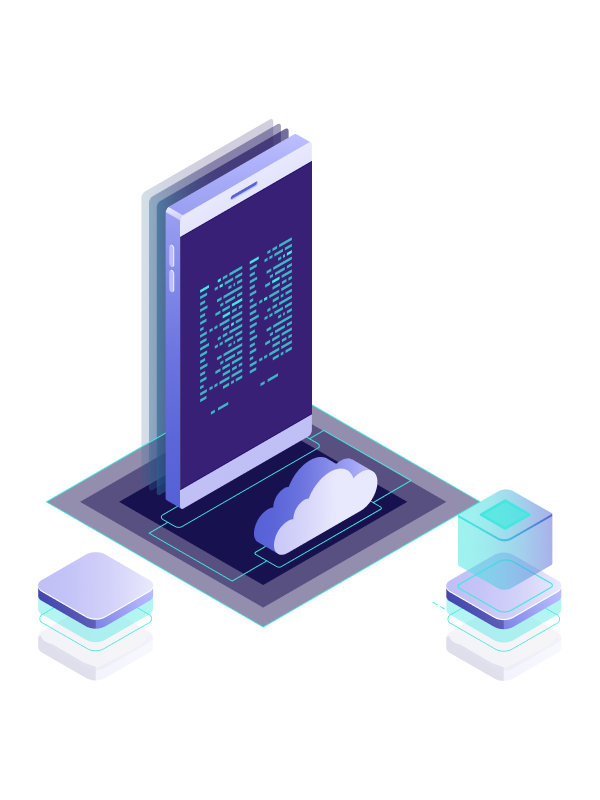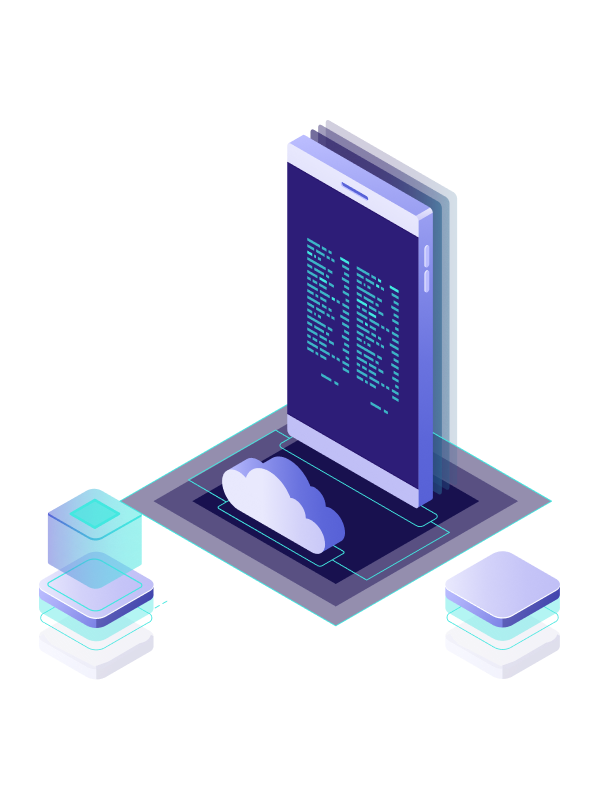Cloudification
Cloud computing is the delivery of computing services – servers, storage, databases, networking, software, analytics, intelligence, and more – over the Internet (“the cloud”) to offer faster innovation, flexible resources, and economies of scale.
You typically only pay for the cloud services you use, helping lower operating costs, run infrastructure more efficiently, and scale as your business needs change.
Not all clouds are the same and not one type of cloud computing is right for everyone. Several different models, types, and services have evolved to help offer the right solution for your needs.
First, you need to determine the type of cloud deployment, or cloud computing architecture, that your cloud services will be implemented on. There are four different ways to deploy cloud services: on a public cloud, private cloud, multi-cloud, or hybrid-cloud.
SIP Trunking
Bring high-quality calling at scale with our cloud-native carrier network. Paired with elastic, usage-based pricing, you can consolidate legacy SIP vendors, remove your on-prem equipment, and eliminate costly, inflexible PRI lines and direct PSTN access worldwide.
Bring an enterprise-grade SIP provider to your organization with the reliable, software-driven voice calling you need
DDoS Protection
Always-on DDoS protection monitors, detects, analyzes, and blocks threats to the network in real-time. Attacks are blocked inline, then redistributed across our global fiber backbone.
Rules are automatically created using machine learning from traffic across the global network to intelligently reroute malicious traffic during a DDoS event.
Your server’s applications are protected from a range of DDOS attack methodologies including UDP, SYN, HTTP floods, and more.
Node Balancers
NodeBalancers are managed load balancers as a service (LBaaS), making load balancing accessible and easy to configure on our platform.
They intelligently distribute incoming requests to multiple backend Compute Instances, so that there’s no single point of failure. This enables high availability, horizontal scaling, and A/B testing on any application hosted with us.
There are two main ways to scale an application to increase the performance and capacity within your applications. Vertical scaling increases or decreases the resources on the existing machines. This is achieved by resizing your Compute Instances. Horizontal scaling adds or remove machines that are identically configured to serve your application or perform a certain task.
This is commonly accomplished through a load balancing solution, like NodeBalancers. Horizontal scaling can be much more flexible and allows you to scale as needed without taking down your site while upgrading or downgrading.
Cloud Firewall
A Cloud Firewall sits between a your Compute Instance and the Internet and can be configured to filter out unwanted network traffic before it even reaches your server.
Defend your apps and services from malicious attackers by creating rules to only allow traffic from trusted sources. Firewall rules can filter traffic at the network layer, providing fine-grained control over who can access your nodes.
Stay protected as your network grows. Effortlessly apply the same ruleset across multiple node Compute Instances. This saves time as you no longer need to manually configure internal firewall software on each server.
VLAN
Create a private L2 network and attach your nodes to it for secure and private communication in the cloud.
Two or more nodes connected via the Private VLAN can see each other as if they were directly connected to the same physical Ethernet network. Devices outside of the network cannot see any traffic within the private network.

